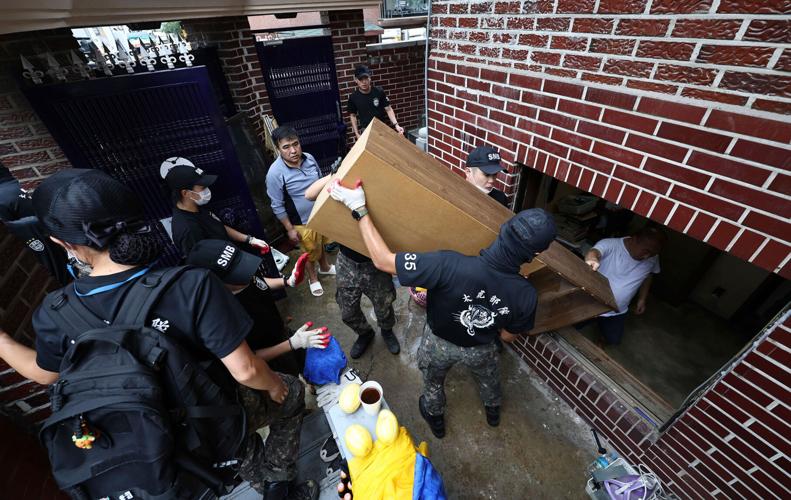Seoul vows to move families from ‘Parasite’-style basement homes after flooding deaths

The deaths, which included a family who drowned after becoming trapped underground, have spurred the South Korean capital to put an end to people living in “banjiha” homes — the often cramped and dingy basement apartments made famous by the movie “Parasite.”The family of three — a woman in her 40s with Down syndrome, her sister, and the sister’s 13-year-old daughter — died after water pressure prevented them from opening the door of their flooded home in Seoul’s southern Gwanak district.On Monday night, torrential rain — the city’s heaviest in more than 100 years — caused severe flooding in many low-lying neighborhoods south of the Han River, sweeping cars away and forcing hundreds to evacuate. As is often the case, it seems likely the poorest will be among those hit hardest.”Those who have difficulty with living and those who are physically ill are bound to be more vulnerable to natural disasters,” President Yoon said on Wednesday. “Only when they are safe, is the Republic of Korea safe.”Similar problems have occurred in other countries in recent years; inApart from chronic displacement and disrupted livelihoods, the expected increase in rain across Asia could bring a host of health hazards including higher risk of diarrheal diseases, dengue fever and malaria — a further blow to already impoverished families without access to medical care or the means to relocate. Meanwhile, flooding and drought could cause rural poverty and rising food costs, according to the United Nations’ Intergovernmental Panel on Climate Change.In Seoul, banjiha residents face the double danger of flooding and heat waves, Choi Eun-yeong said. “The changes brought about by the climate crisis are almost catastrophic, especially for the most vulnerable, because they don’t have proper housing to respond to those conditions,” she said.




